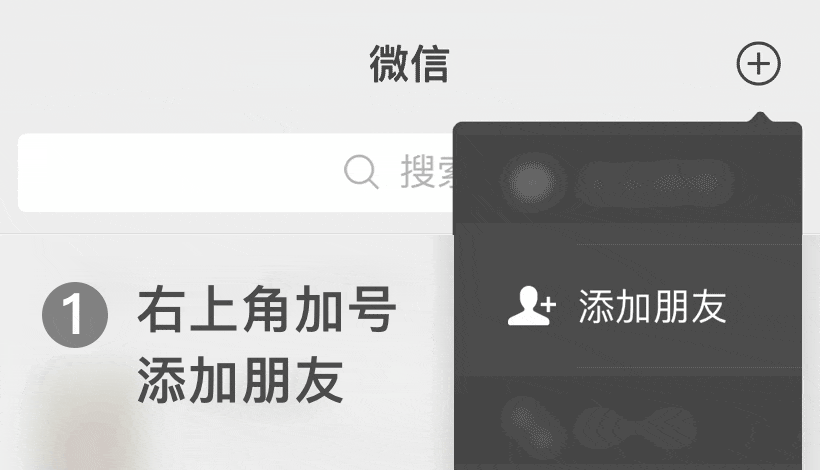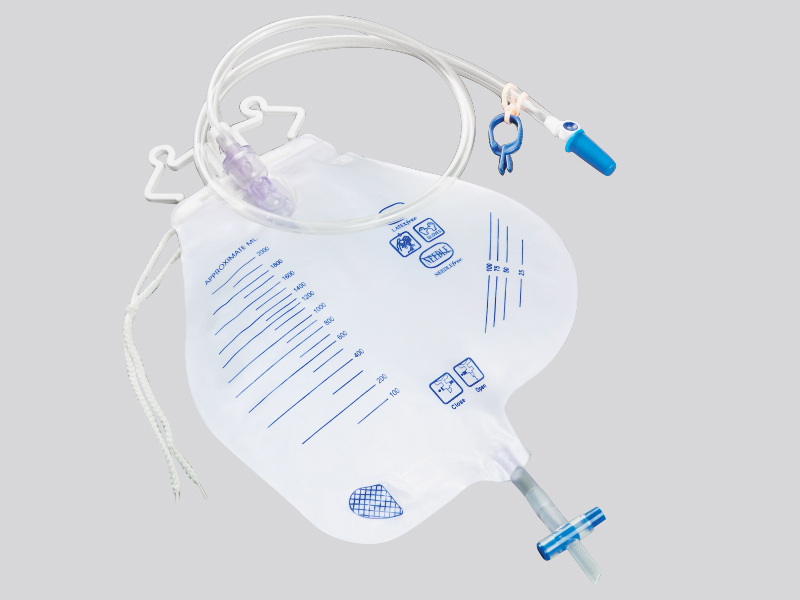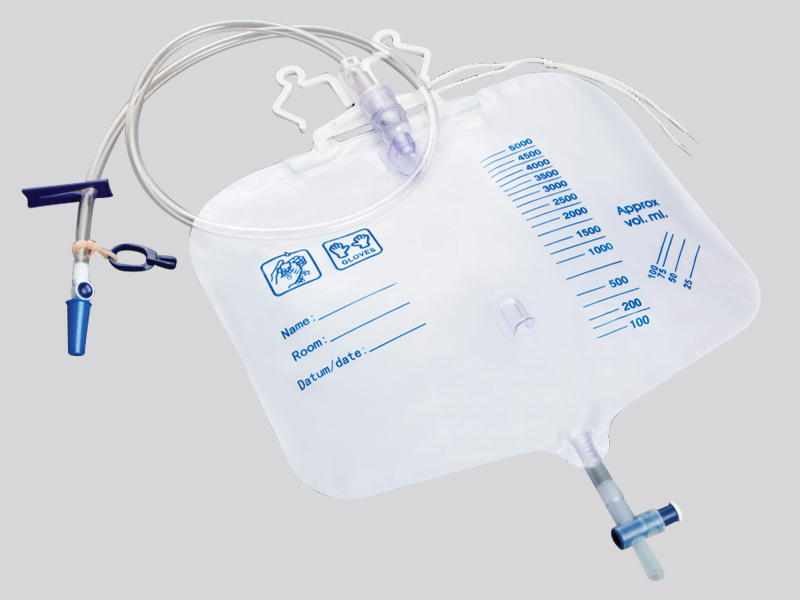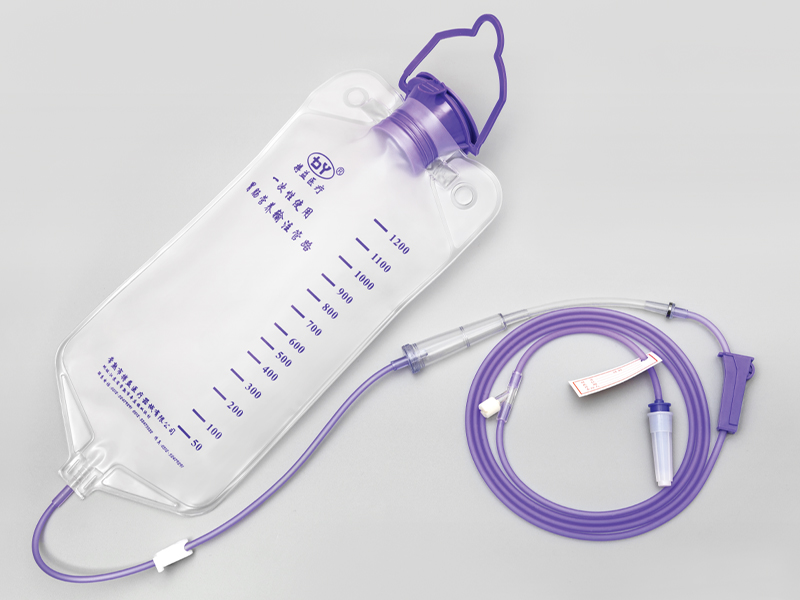
The current position:Home > Information dynamic
> Industry Trends
What are the applications of disposable gastrointestinal nutrition infusion tubing in clinical depar
source:www.szkuer.com | Release time:2025年05月19日1、 Intensive Care Unit (ICU)
1. Application scenarios
Critical illness patients: such as those with severe trauma, burns, or inability to eat orally after major surgery, require enteral nutrition support through nasal feeding or gastric/jejunostomy tube.
Long term mechanically ventilated patients require continuous gastrointestinal nutrition to maintain body metabolism and avoid intestinal function degradation caused by parenteral nutrition.
2. Core requirements
High safety: The pipeline needs to have good sealing and anti reflux design (such as equipped with anti reflux valves) to prevent nutrient solution from accidentally attracting and causing aspiration pneumonia.
Correct infusion: Use in conjunction with an enteral nutrition pump, control the infusion rate correctly (such as 50-125ml/h), and avoid bloating and diarrhea caused by excessive infusion.
Material compatibility: Resistant to corrosion from nutrient solutions (such as high protein and high osmotic solutions), avoiding pipeline deformation or chemical reactions.
2、 Neurology/Neurosurgery
1. Application scenarios
Stroke and coma patients: Due to swallowing dysfunction (such as medullary paralysis), they are unable to eat independently and require long-term nasogastric or nasogastric feeding.
Postoperative patients with traumatic brain injury: Early enteral nutrition can protect the gastrointestinal mucosa and reduce the risk of stress ulcers.
2. Core requirements
Comfort and Tolerance: The tubing material is soft (such as medical grade polyurethane), reducing damage to the nasal cavity and throat, and suitable for long-term retention (up to 42 days).
Anti clogging tube design: The inner diameter of the pipeline is moderate (such as Fr10-14), combined with pulse flushing (flushing with 20-30ml of physiological saline every 4 hours), to avoid blockage caused by residual nutrient solution.
3、 Geriatrics/Rehabilitation Department
1. Application scenarios
Elderly patients with frailty: Due to difficulty chewing, decreased appetite, or chronic diseases such as Alzheimer's disease, insufficient intake requires enteral nutrition supplementation.
Patients in the recovery period, such as those with fractures or stroke, require high-energy and high protein nutrient solutions to promote tissue repair.
2. Core requirements
Convenience of operation: Simplified pipeline components (such as integrated connectors) make it easy for nursing staff to quickly connect nutrient solution bags or syringes.
Anti entanglement design: The length of the pipeline is moderate (such as 120-150cm), with a fixed clip to avoid tangling or dislodging of the pipeline during patient movement.
4、 Pediatrics (neonatology, pediatric surgery)
1. Application scenarios
Premature infants and low birth weight infants: Micro feeding through small tubes (such as Fr8-10) is necessary to promote gastrointestinal development.
Postoperative children with congenital gastrointestinal malformations, such as esophageal and intestinal atresia, require enteral nutrition transition through a fistula tube.
2. Core requirements
Detailed design: The inner diameter of the pipeline is small and the scale is correct (such as marked every 10cm), making it easy to calculate the infusion depth and dose.
Biocompatibility: Made of BPA free material to avoid harm to the delicate digestive tract of infants and young children.
5、 General Surgery/Thoracic Surgery
1. Application scenarios
Patients undergoing gastrointestinal surgery, such as gastric cancer and colorectal cancer, should receive early enteral nutrition through a jejunostomy tube to protect the anastomotic site and reduce dependence on intravenous nutrition.
Postoperative patients with esophageal cancer: Due to esophagectomy, long-term gastric fistula feeding is required until gastrointestinal function is restored.
2. Core requirements
Anti infection ability: The pipeline interface should have a sterile connection design (such as a Luer lock connector) to reduce the risk of abdominal infection.
High temperature resistance: It can tolerate the heating of nutrient solution (such as 38-40 ℃), avoiding excessive cold damage to the gastrointestinal tract and causing spasms.
6、 Oncology Department
1. Application scenarios
Chemotherapy patients: unable to eat due to side effects such as nausea, vomiting, and oral mucositis, requiring enteral nutrition to maintain weight and immunity.
Late stage cancer cachexia patients: High energy density nutrient solution (such as 1.5kcal/ml) should be slowly and continuously infused through tubing.
2. Core requirements
Anti reflux and fixation: The pipeline is equipped with adjustable fixing wings, which are fixed with abdominal tape to prevent displacement when the patient turns over.
Multi channel compatibility: Some pipelines are designed with a dual chamber structure, which can simultaneously deliver nutrient solution and medication to avoid mutual interference.
7、 Precautions for clinical use
1. Standardize the operation process
Before placing the tube, confirm the position of the pipeline (such as X-ray fluoroscopy, pH test paper to detect the acidity and alkalinity of gastric juice) to avoid entering the airway by mistake.
Daily assessment of the necessity of indwelling tubing, early conversion to oral diet, and reduction of complications such as nasal mucosal injury and catheter-related infections.
2. Key points of quality control
Choose sterile packaging and single patient specific disposable tubing, prohibit reuse, and reduce the risk of cross infection.
Pay attention to the expiration date and storage conditions of the pipeline (such as storing in a dark and dry place), to avoid material aging affecting safety.
3. Prevention of complications
Blockage: Rinse the tube with warm water every 4 hours, and increase the frequency of flushing after infusion of viscous nutrient solution.
Infection: Regularly replace the tubing (such as changing the nasogastric tube every week, following medical advice for the jejunostomy tube), and keep the ostomy site clean.
Diarrhea: Control the infusion speed and temperature to avoid rapid entry of hypertonic nutrient solution into the intestine.
Summary: Clinical value of disposable gastrointestinal nutrition infusion tubing
Correct support: Meet the personalized nutritional needs of patients from different departments, suitable for patients from premature infants to elderly patients.
Safe and convenient: The disposable design eliminates cross infection, simplifies nursing operations, and improves medical efficiency.
Promoting recovery: Early enteral nutrition can maintain intestinal barrier function, reduce infection rates, and shorten hospitalization time (studies have shown that reasonable enteral nutrition can reduce ICU patients' hospitalization time by 2-3 days).
This pipeline has become a core tool for modern clinical nutritional support, especially playing an irreplaceable role in the treatment of critically ill, perioperative, and chronic disease patients.
Prev:
What are the advantages of disposable feeding bags
Next:
What is the anti backflow function of disposable …

 Cn
Cn En
En WeChat ID:
WeChat ID:







 Contact us
Contact us
 Add WeChat
Add WeChat
 Telephone
Telephone